Disclosure: Meeple Mountain received a free copy of this product in exchange for an honest, unbiased review. This review is not intended to be an endorsement.
The 2020 Cartoon Saloon film Wolfwalkers, a visually rapturous animated film about a young girl who discovers she can turn into a wolf, has served as the source material for two different board games in the year since its release. Both published by Value Add Games, WolfWalkers: The Board Game and WolfWalkers: My Story—the film does not capitalize the second “w”—retain the film’s striking aesthetic. If it ain’t broke, etc.
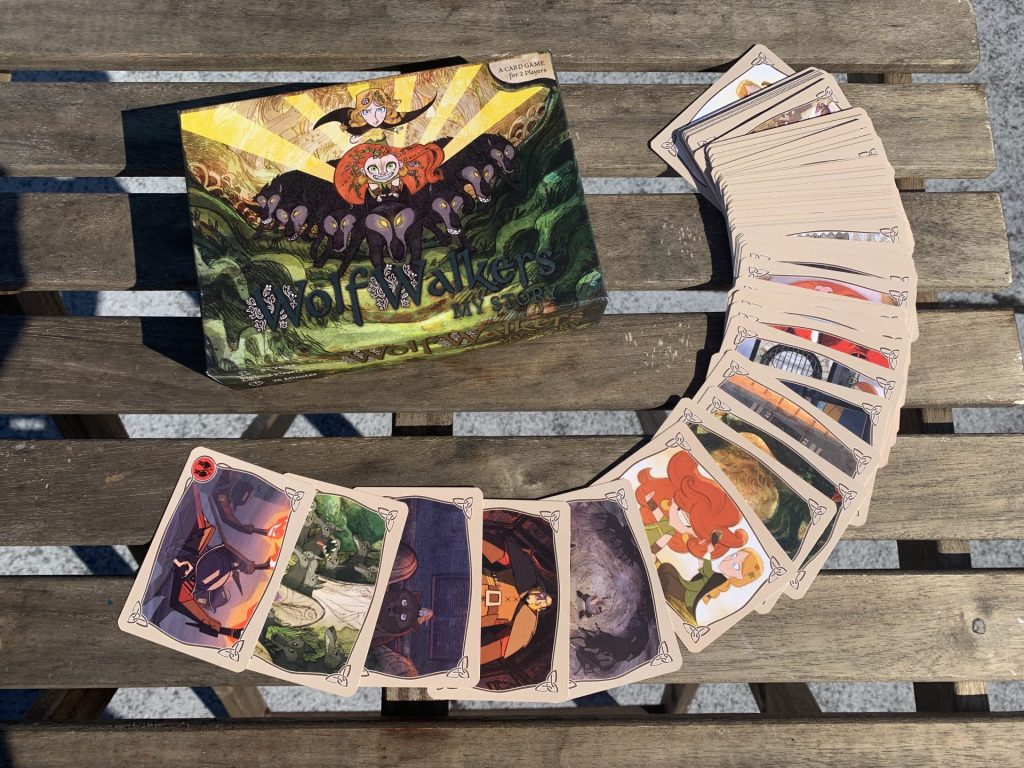
The Board Game, which I won’t be reviewing here, is aimed explicitly at a family audience, with an age range of 6+. My Story is a two-player tableau building game advertised for ages 8+, which is the kind of claim that strikes me as suspicious if technically possible; designer Maja Milavec has created one of the more brain-frying games I’ve played in quite a while.
Grid Is Good
In WolfWalkers: My Story, you and your opponent take turns adding cards one at a time from the common market to your 5 x 5 grids. The cards are either Story side up, displaying a still from the film and several symbols in the lower left corner, or Challenge side up. The Challenge cards introduce conditions that, when fulfilled, give you points. Things like arranging cards with specified symbols in a certain constellation, or balancing the amount of two different symbols within your grid. You place Story cards according to the conditions imposed by the Challenge cards. That’s the whole thing. After 25 rounds, once both grids are filled, you count up your scores and the higher one wins.
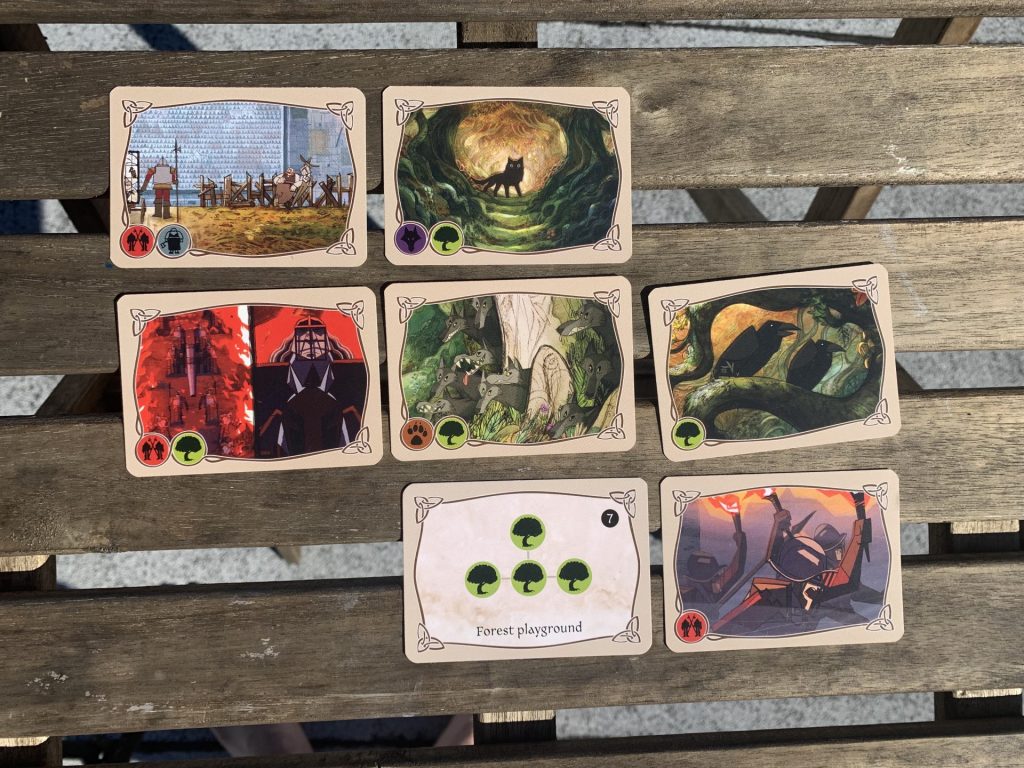
How Appt
The first ten turns go by in a flash. “What a delightful filler game I’ve found,” the player coos, “what pleasant gameplay and gorgeous art.” It’s quick, fun, and borders on the mindless without ever becoming inane, a real sweet spot of light games if you ask me. Starting around that eleventh turn, though, things slow down exponentially as you start to juggle the possibilities, probabilities, and permutations the game presents.
A short list of everything you have to keep in mind during a game of WolfWalkers: My Story, provided you want to play well: What Story cards you have, what Story cards your opponent has, how those cards are arranged in your grid, what Challenges you have, what Challenges your opponent has, the current state of the requirements of all those challenges on both your and the other player’s board, what cards are in the market, what cards are left in the deck, what cards you need, what cards your opponent needs, and how many cards are left until the end of the game. There is a massive amount of information to process, and this isn’t a game you can play well without processing all of it constantly. By the twentieth card, my brain starts spitting out smoke and I repeat “I am not a smart man” over and over until I lose consciousness.
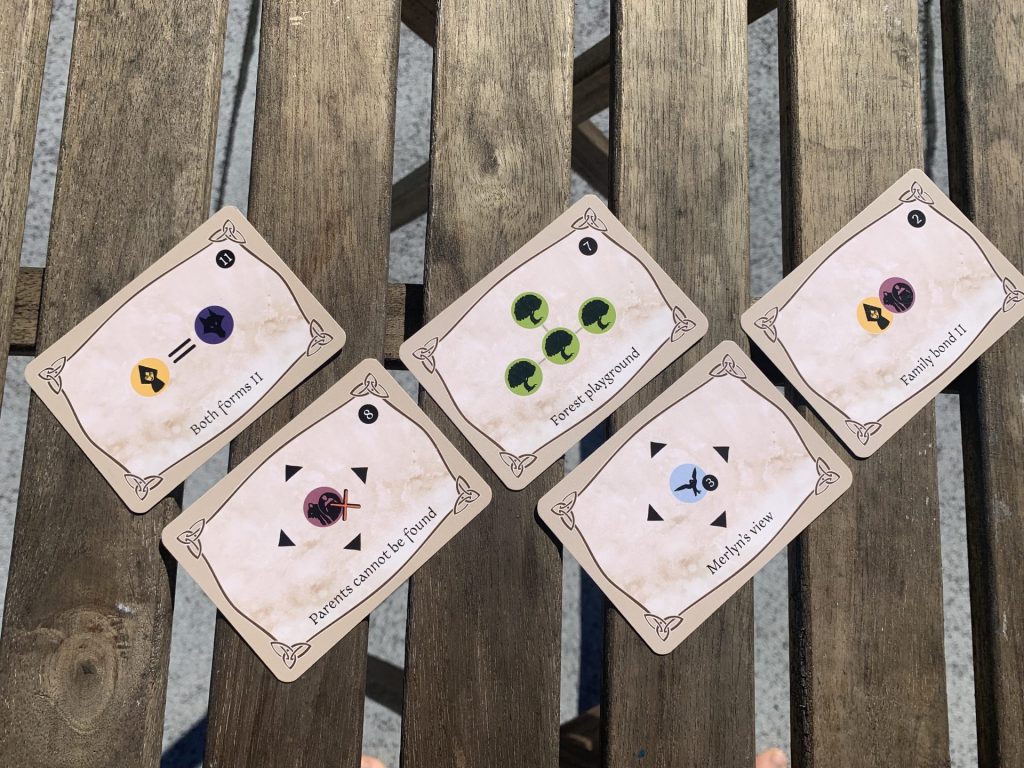
WolfWalkers: My Story feels like it wants to be an app, one where you can tap on your Challenge cards and have the relevant bits highlighted; completed shapes in green, partials in yellow, challenges that depend on having a balanced number of symbols can quickly display the count, etc. As a physical game, I think it asks too much of the players in a way that can only produce one of two outcomes: either you do what I usually do and melt your circuits, or you become so tuned out that the game doesn’t offer much beyond pleasantry. Which, hey, that could be enough.
What’s in the Box
Value Add Games live up to their name by including two modular expansions that tweak gameplay in various ways. The Permanent Change cards alter the rules of the game, while the Opportunities cards give players one-time use abilities. These additions do add to the complexity of onboarding the game, but most of them also go a long way towards easing the stress of the later rounds by providing you with a few more options. Though ultimately medium-cool on the game, I very much enjoyed seeing the different ways the Permanent Change cards effect how the entire game feels. It’s a cool little practical exploration of game design, just the kind of thing I’m a sucker for.
I don’t know that My Story is worth playing with intensity. I’m sure the difference between a game where I’m just thinking about my own board and a game where I’m keeping both in mind is about 5 points’ worth of spread in either direction. The arc of this game is good, the way you start with small, seemingly innocuous decisions that then build into this massive, intricate decision space, but I think it builds to be too much. I like crunchy fillers, but WolfWalkers: My Story is crunchy enough to chip a canine.


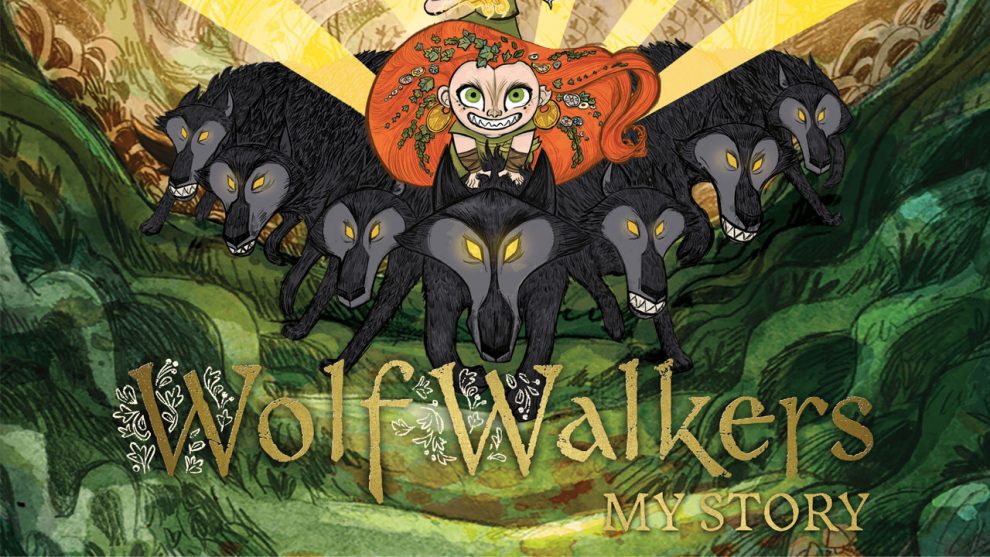

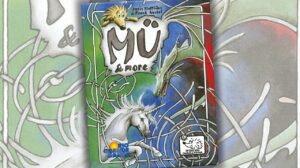
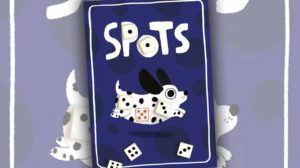

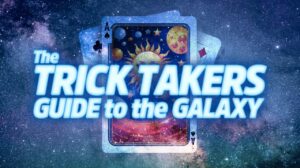




Add Comment